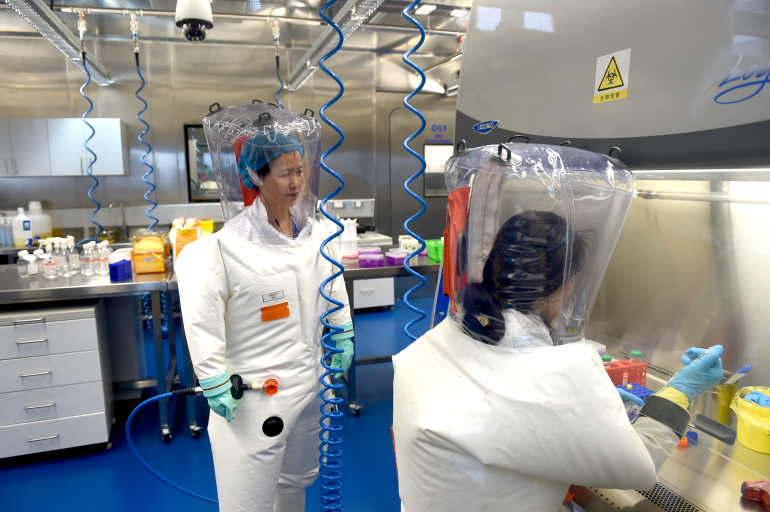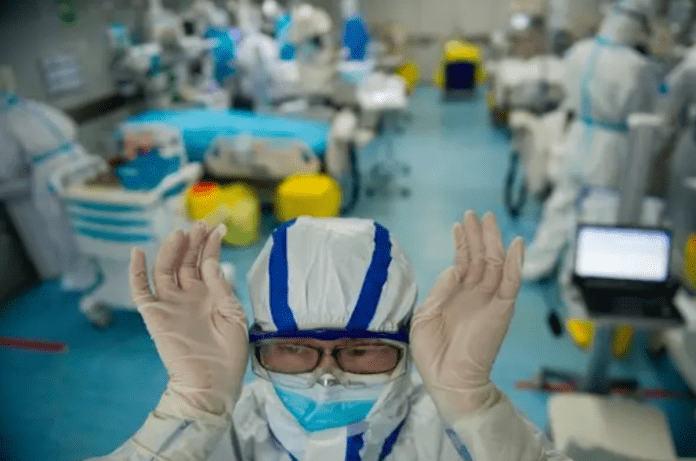China has rejected a proposal from the World Health Organization (WHO) that the expert team investigating the origins of Covid-19 should return to the sites in China where the coronavirus first emerged, saying researchers should instead make a priority of the “very likely” possibility that the virus originated in animals and expand their work to other countries around the world.
Speaking at a news conference at the State Information Council Zeng Yixin, the vice minister of China’s National Health Commission, said he was “surprised” that the WHO had proposed the team return to places in the central city of Wuhan that they visited earlier this year and also investigate the hypothesis that it leaked from a lab.
Zeng said such a move was “not scientific”.
In a closed-door meeting last week, WHO chief Tedros Adhanom Ghebreyesus proposed the second stage of the agency’s investigation into the origins of coronavirus should include further studies in China as well as laboratory “audits”.
“Finding the origins of this virus is a scientific exercise that must be kept free from politics,” Ghebreyesus said. “For that to happen, we expect China to support this next phase of the scientific process by sharing all relevant data in a spirit of transparency.”
The WHO has been under growing pressure to step up its investigation into the origin of the virus, which first emerged in Wuhan and has now killed more than 4.1 million people around the world.
Its team of international and Chinese experts made their first visit to Wuhan in mid-January, more than a year after the first cases of what was then a “mysterious pneumonia” were first detected. They spent four weeks in the city, visiting key sites including the now-closed Huanan Seafood market, and two research laboratories that worked with viruses from bats – a suspected animal host for Covid-19.

In a joint report released in March the team said the virus had probably been transmitted from bats to humans through another animal but calls for a deeper investigation into the virus’s origins have continued amid speculation that it could have escaped from one of the laboratories. In May, US President Joe Biden ordered a review of the virus origins saying that intelligence agencies were divided over whether it had come from animals or from a lab.
The hypothesis was also included in the WHO’s phase-two proposal although the theory had been downplayed in the team’s initial report.
“We hope the WHO would seriously review the considerations and suggestions made by Chinese experts and truly treat the origin tracing of the Covid-19 virus as a scientific matter, and get rid of political interference,” Zeng said.
Yuan Zhiming of the Wuhan National Biosafety Laboratory, who was also at the press conference, said the bio-protection systems at the labs in Wuhan were “stable and reliable” and in line with international standards.
“The general consensus by the academic community is that the coronavirus was naturally generated,” Yuan said, and dismissed reports that three researchers had fallen sick with coronavirus-like symptoms shortly before the first cases emerged in Wuhan, as “completely out of nothing”.
Liang Wannian, who leads the Chinese scientists in the WHO team and also spoke to the media, also dismissed questions over China’s transparency, saying it was not possible to share the raw data from the earliest patients publicly, or allow it to be copied because of privacy concerns.
He stressed the need to focus on animal-to-human transmission and look not only at-bats but other species including pangolins, mink and ferrets. He also stressed that the place where the first cases were detected might not be where the disease had actually originated, and reeled off a number of countries and cities where coronavirus traces had allegedly been found in patients or in wastewater at around the same time as the illness was being reported in Wuhan.

